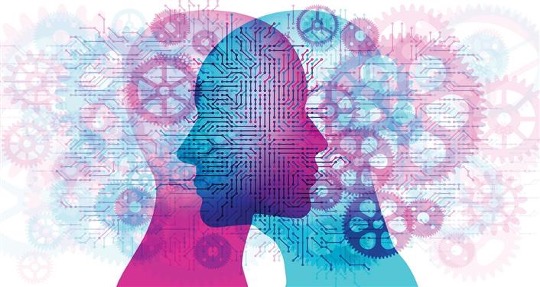Artificial Intelligence: The Very Idea

|
References
Primary Reference
- Honavar, V. Artificial Intelligence - The Very Idea. Draft. 2025
Additional References
Computers and Brains
- Wooldridge, M. (2021). A Brief History of Artificial Intelligence - What it is, where we are, and where we are going.. MacMillan.
-
Lamb, H., Levy, J., and Quigley, C. (2023) Simply Artificial Intelligence. Penguin Random House
- Colombo, M. and Piccinini, G. (2023), The Computational Theory of Mind. Cambridge University Press.
- Hillis, D. (2015). The Pattern on the Stone., Basic Books.
- Dasgupta, S. (2016). Computer Science - A very short introduction. Oxford University Press.
- Bernhardt, C. (2016). Turing's Vision - The Birth of Computer Science. MIT Press.
- Von Neumann, J. (1957). The Computer and the Brain. Yale University Press
Natural and Artificial Intelligence
-
Fischler, M. and Firschein, O. (1987). Intelligence - The Eye, the Brain, and the Computer Addison-Wesley.
-
Boden, M. (2016). AI Its nature and Future. Oxford University Press.
-
Michell, M. (2019). Artificial Intelligence - A guide for thinking humans. Picador.
-
Haugeland, J. (1985). Artificial Intelligence - The Very Idea. MIT Press.
- Dennett, D. C. (2008). Kinds of Minds - Towards an understanding of consciousness Basic Books
- Simon, H. (1995). The Sciences of the Artificial MIT Press.
- Wilks, Y. (2023). Artificial Intelligence - Modern Magic or Dangerous Future?. MIT Press.
-
Togelius, J. (2024) Artificial General Intelligence. MIT Press.
-
Copeland, J. (1995). Artificial Intelligence - A Philosophical Introduction, Wiley.
- Yuste, R. (2023). Lectures in Neuroscience. Columbia University Press.
-
Kurzweil, R. (2012). How to Create a Mind. Penguin Random House.
- Pinker, S. (2009). How the Mind Works Penguin.
-
Kowalski, R. (2011) Computational Logic of Human Thinking, Cambridge University Press.
-
Alpaydin, E. (2021) Machine Learning. MIT Press.
-
Kelleher, J.D. (2019). Deep Learning. MIT Press.
-
Sejnowski, T. (2018). The Deep Learning Revolution. MIT Press.
- Narayanan, A. and Kapoor, S. (2024). AI Snake Oil: What Artificial Intelligence Can Do, What It Can’t, and How to Tell the Difference, Princeton University Press.
AI - Ethics, Societal Implications
-
Russell, S. (2019) Human Compatible - Artificial Intelligence and the Problem of Control. Penguin Random House.
- Christian, B. (2021). The Alignment Problem - Machine Learning and Human Values. W. W. Norton and Company.
-
Zerelli, J. (2021). A Citizen's Guide to Artificial Intelligence. MIT Press.
- Borg, JS, Sinnott-Armstrong, W., and Conitzer, V. (2024), Moral AI and How to Get There Penguin Random House.
-
Coeckelbergh, M. (2020). AI Ethics MIT Press.
-
Marcus, G. and Davis, E. (2020). Rebooting AI - Building AI We can Trust Penguin Random House.
Building Artificial Intelligence Systems
-
Poole, D. and Mackworth, A. (2023). Artificial Intelligence - Foundations of Computational Agents, Cambridge University Press.
- Russell, S. and Norvig, P. (2022). Artificial Intelligence - A Modern Approach Pearson.
History of AI
-
Pickover, C.A. (2019). Artificial Intelligence - An Illustrated History: From Medieval Robots to Neural Networks. Union Square and Company.
-
McCorduck, P. (2004). Machines Who Think
A Personal Inquiry into the History and Prospects of Artificial Intelligence
-
Nilsson, N. (2019). The Quest for Artificial Intelligence. Cambridge University Press.
|

